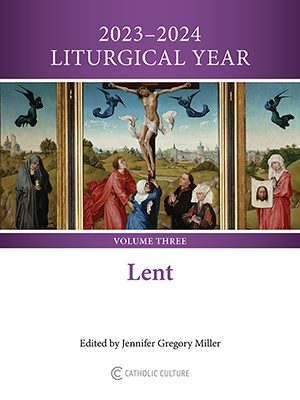Miscellany: on Irish nationalism, no-fault divorce, and a curious Vatican cover-up
By Phil Lawler ( bio - articles - email ) | Mar 11, 2015
Catching up on some interesting commentaries that have appeared recently on other sites:
- In the Irish Catholic, the always insightful David Quinn observes that Ireland’s major political parties are alienating Catholic voters, with interesting consequences especially in Northern Ireland. There, the Democratic Unionist Party—once a virulently anti-Catholic group, founded by the late Rev. Ian Paisley—is defending the dignity of human life and of marriage, while the nationalist parties—which once commanded the support of Catholics—side with the Culture of Death. Catholics are noticing that on these issues, the politics of Northern Ireland are more congenial. As a result, Quinn notes, “they feel they are now being forced to divide their loyalties between their nationalism and their Catholicism.”
- In Crisis, Stephen Baskerville makes a powerful argument that the crisis in marriage law began long before the drive for same-sex marriage. He points out that with the acceptance of no-fault divorce, the state took upon itself the power to declare that a marital union had ended. Since that time, marital breakdown has accelerated, with disastrous consequences for society—and for the Church. Baskerville explains: “For marriage is not only the life event where the churches’ authority intersects with the lives of most people; it is also today’s most momentous fault line in the churches’ continual (and losing) power struggle with the state.” If the government can decide what is and is not a real marriage, then the Church’s role is secondary. The only solution, Baskerville argues, is for the Church to fight against the state’s usurpation of authority and for the restoration of the proper understanding of marriage.
- On the Crux site, John Allen writes about the odd announcement that valuable letters written by Michelangelo had been stolen and offered back to the Vatican for ransom. The Vatican’s handling of this story, Allen comments, shows a good deal about how the Vatican operates. Allen summarizes the standard operating procedures illustrated in this case:
- Never air your dirty laundry in public.
- On the inside, the system traditionally has put much more emphasis on trust than vigilance.
If I might add a 3rd S.O.P., which is perhaps implicit in Allen’s 1st:
The “need to know” principle is always in effect.
The theft, we are told, was discovered in 1997. For 18 years, the Vatican said nothing about it, until a disclosure in an Italian daily forced some response. Why wasn’t the crime reported? According to Il Messaggero it was a former Vatican employee who offered to return the Michelangelo letters in exchange for a hefty payment. Presumably that former employee was identified, or at least identifiable. Why wasn’t there any comment about efforts to track down the culprit and recover the letters?
It seems that Vatican officials have decided that you and I don’t need to know. And that’s right; we don’t. But if you habitually cover up the interesting stories—even in cases like this one, when disclosure would do no harm to anyone but the thief—you can’t blame reporters for thinking that you won’t be forthcoming with the facts in more sensitive cases.
All comments are moderated. To lighten our editing burden, only current donors are allowed to Sound Off. If you are a current donor, log in to see the comment form; otherwise please support our work, and Sound Off!









